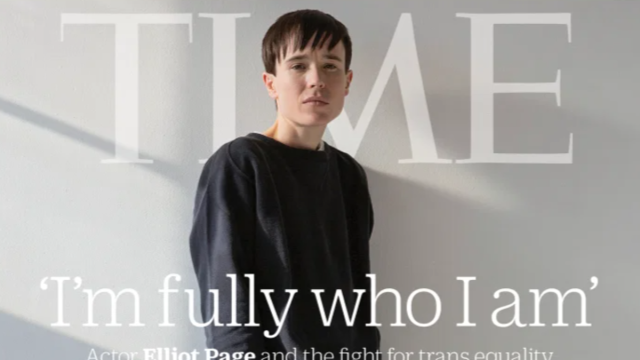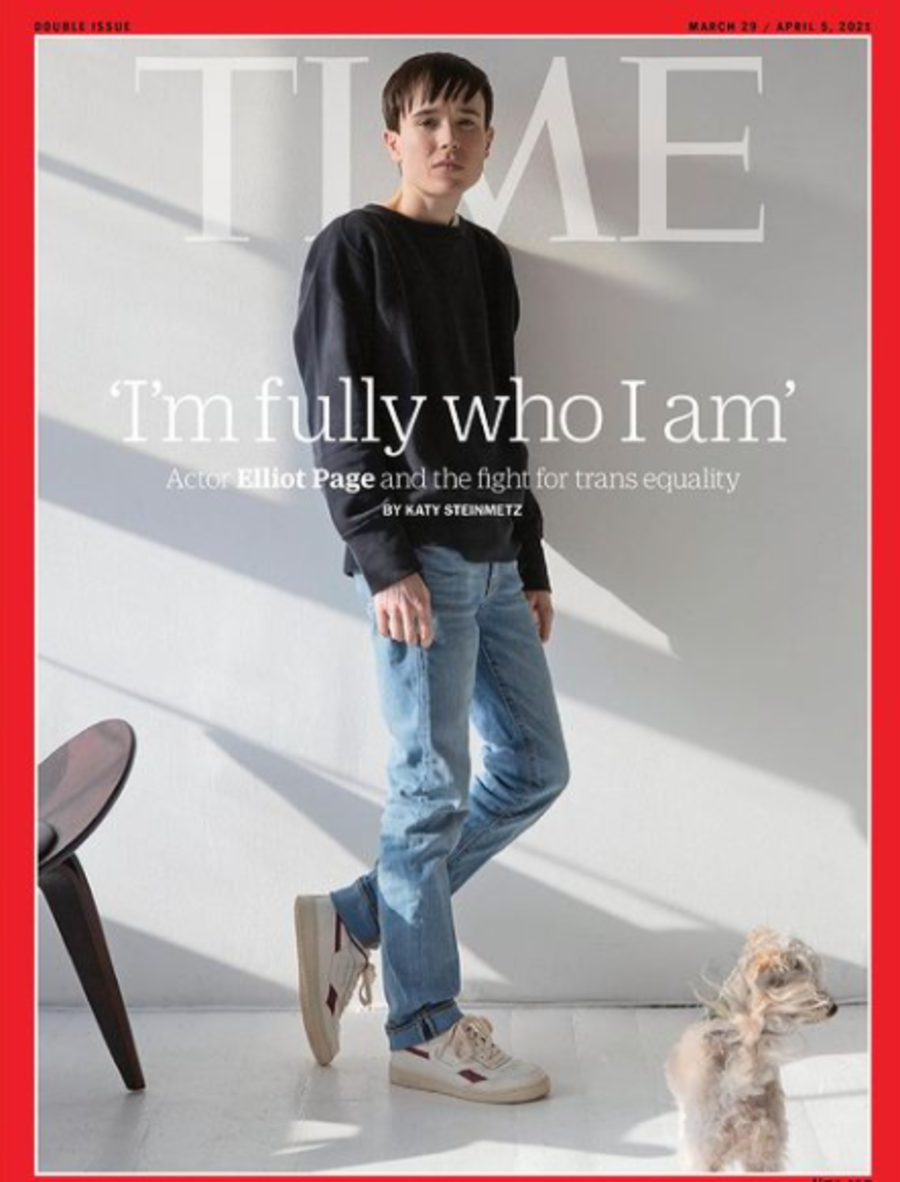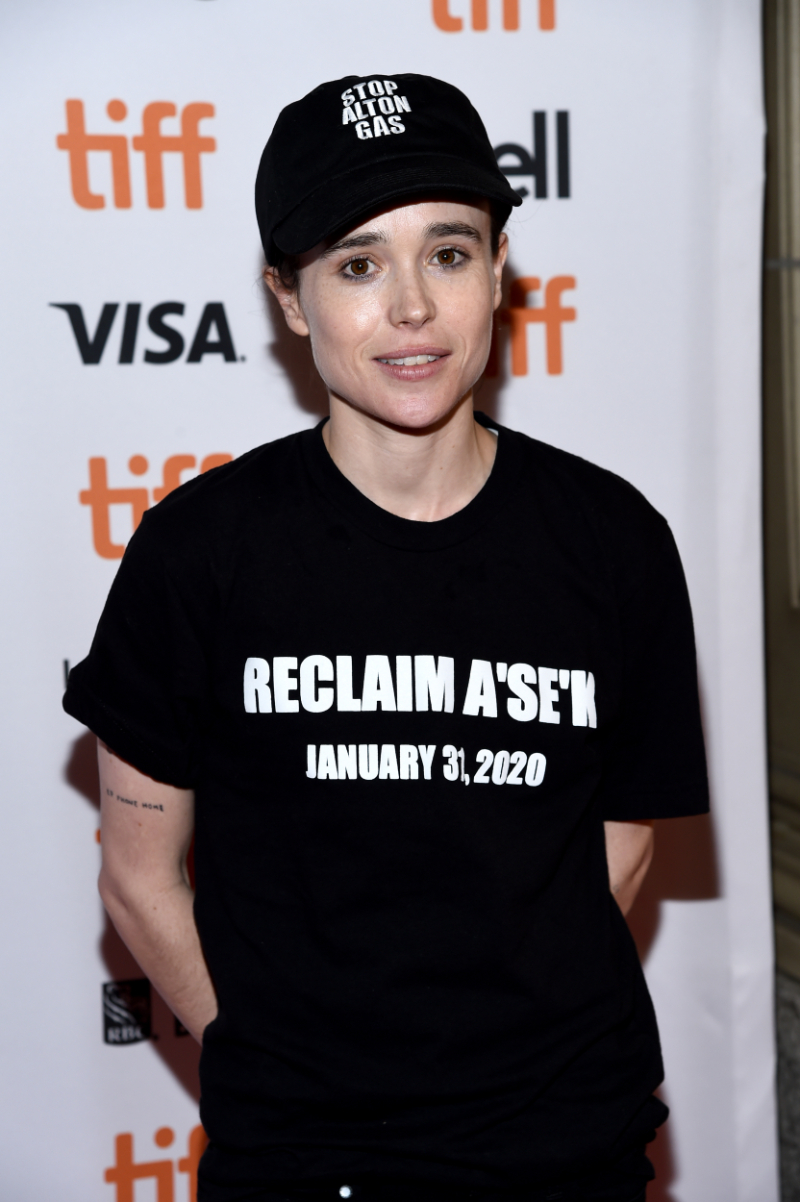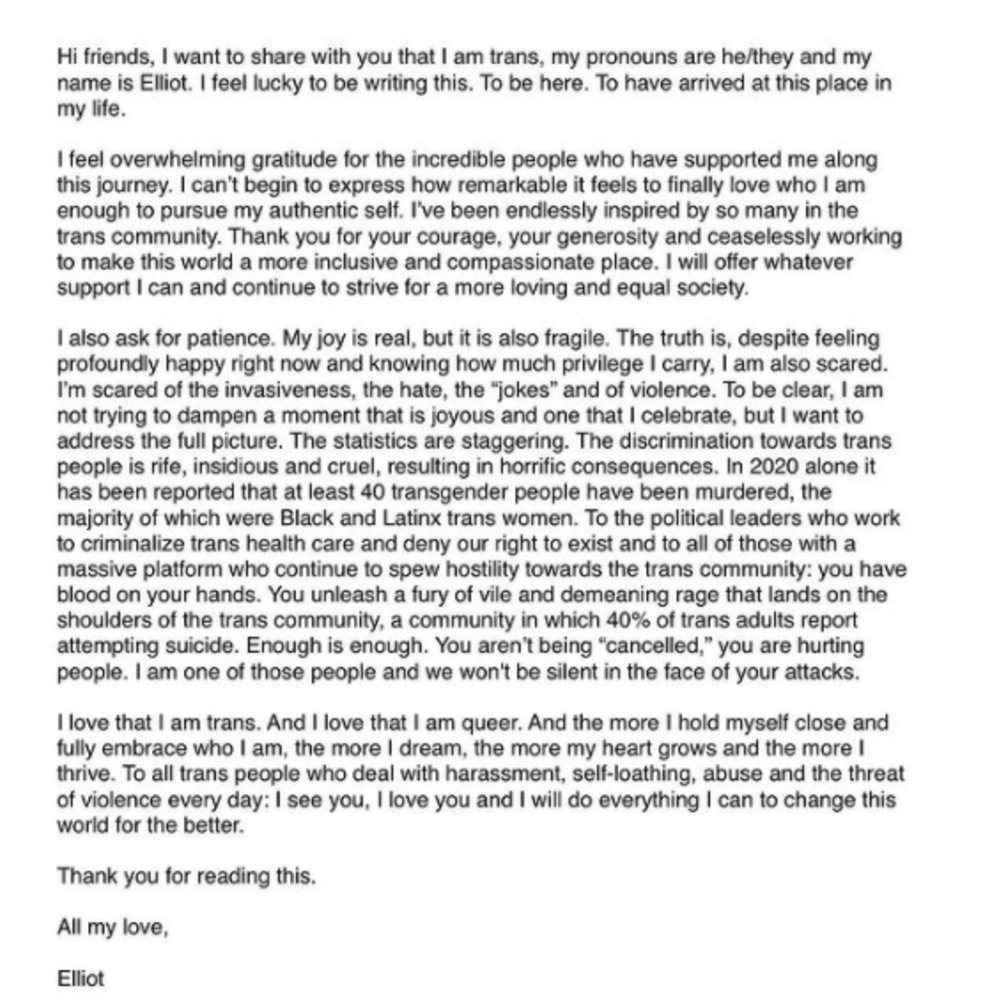This Is What Inspired Elliot Page to Come Out Publicly

When Elliot Page came out publicly as transgender on Dec. 1, 2020, the actor trended on Twitter and received an outpouring of support from fans and other celebrities. But, of course, not everyone showed love. “What I was anticipating was a lot of support and love and a massive amount of hatred and transphobia,” Page said in a new interview with Time magazine. “That’s essentially what happened.”
In the interview, The Umbrella Academy star opened up about the decision to come out to the world in his December social media post, and the timing had to do with something we are all experiencing: the COVID-19 pandemic.
Read on to see what Page had to say about coming out and what else he revealed about his journey. And for more on the Juno actor, check out Elliot Page’s Wife Shows Support After the Actor Comes Out as Transgender.
Being isolated influenced Page’s decision.

Reflecting on the pandemic, Page said, “I had a lot of time on my own to really focus on things that I think, in so many ways, unconsciously, I was avoiding.” As the Time interview points out, Page and his ex-wife, Emma Portner, had separated in the summer of 2020. With this time to explore his own identity in isolation, Page said, “I was finally able to embrace being transgender and letting myself fully become who I am.”
Read another coming out story in Pedro Pascal’s Sister Says He Helped Her Come Out as a Transgender Woman.
His name was inspired by a favorite movie.

Page also shared with Time that he chose the name Elliot, a name he’s always liked, in part because of the lead character in the 1982 classic E.T. the Extra-Terrestrial. “I loved E.T. when I was a kid and always wanted to look like the boys in the movies, right?” the Umbrella Academy actor said. Page even has a tattoo on his arm that reads, “E.P. phone home,” referencing a famous quote from the film.
Read about another celeb’s ink in Madonna Just Got Her First Tattoo and It’s for All Her Kids.
Page was struggling with Hollywood expectations of gender presentation before coming out.

During major moments in Page’s acting career—such appearing in blockbusters like 2006’s X-Men: The Last Stand and 2010’s Inception—he was struggling with anxiety, depression, and panic attacks, and even considered quitting acting completely. Page said he didn’t know “how to explain to people that even though [I was] an actor, just putting on a T-shirt cut for a woman would make me so unwell.”
In 2014, Page came out as gay, which made him feel more comfortable in some ways, but not entirely, because he was still not living as his true self. At this point, Page made a masculine wardrobe a requirement of any role he took on, and started to produce his own films with LGBTQIA+ actors. “The difference in how I felt before coming out as gay to after was massive,” Page told Time. “But did the discomfort in my body ever go away? No, no, no, no.”
For more celebrity news delivered right to your inbox, sign up for our daily newsletter.
Page is fighting for trans people who don’t have the same resources or privilege as him.

Page told Time that he came out for himself, further explaining, “I want to live and be who I am.” But, he knows that with his celebrity, coming out can also have a big impact on others, whether that means giving them someone to look up to or using his platform to fight for trans rights. For instance, Page has used his platform to speak out against anti-trans legislation in Alabama.
Page talked about this in his open letter when he came out. After citing harrowing statistics about the amount of trans people who are killed or who consider ending their lives, Page wrote, “To all trans people who deal with harassment, self-loathing, abuse and the threat of violence every day: I see you, I love you and I will do everything I can do change this world for the better.”
For another star in the LGBTQIA+ community, check out JoJo Siwa Just Revealed Why She Decided to Come Out to Her Fans.